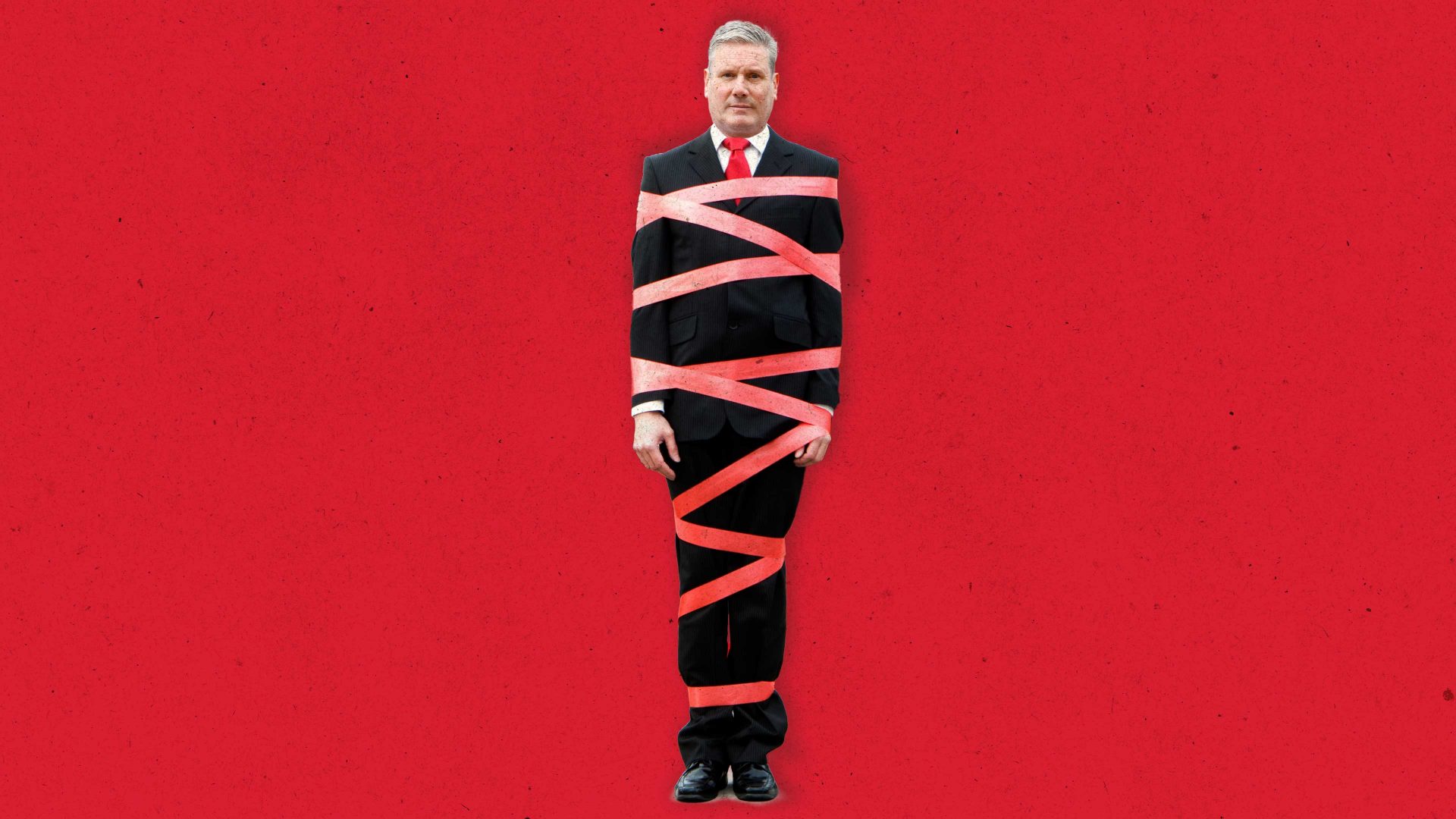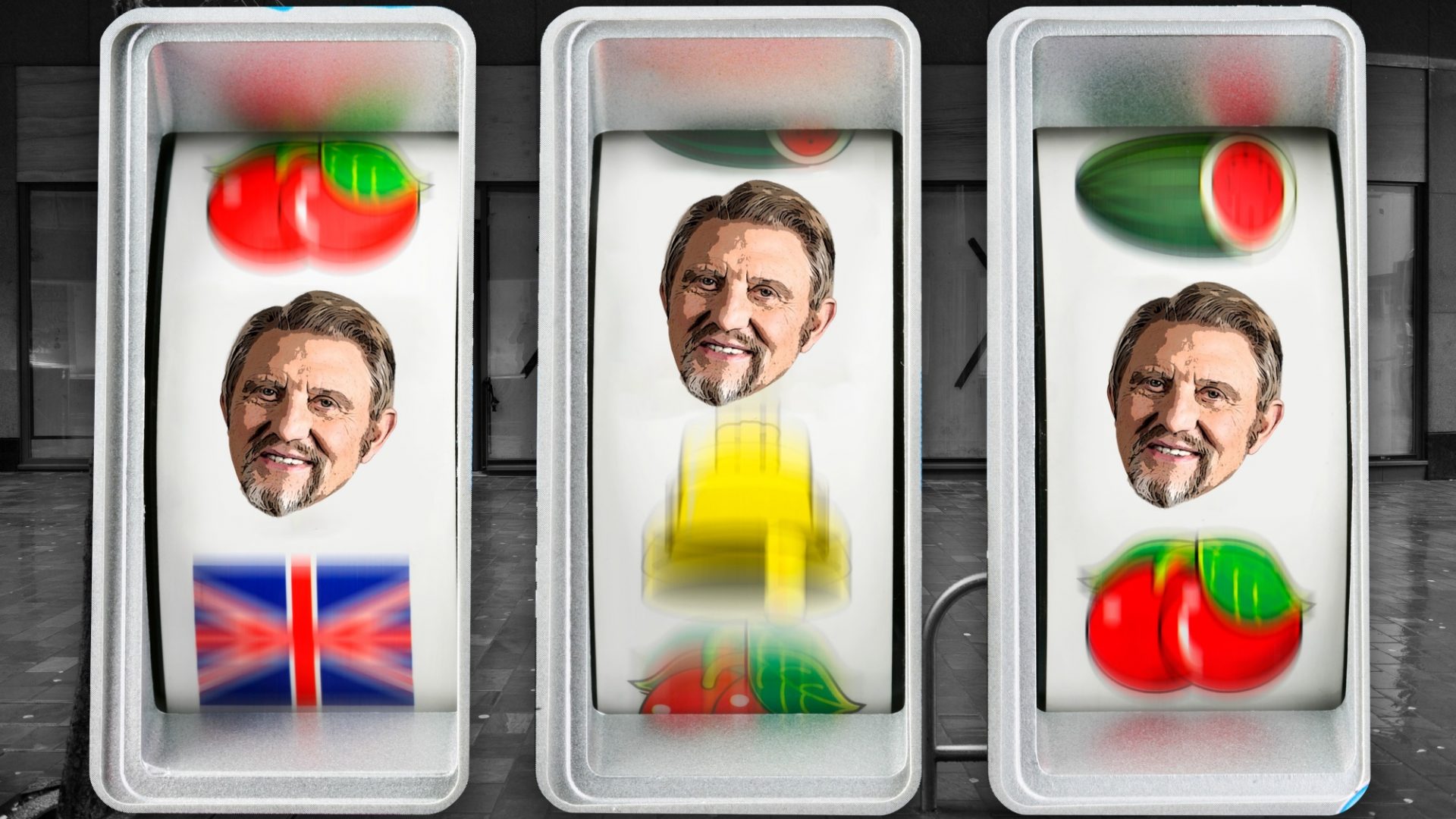Keir Starmer likes to portray himself as a sensible captain. So perhaps it is no surprise that when it comes to renegotiating Britain’s trade deal with Europe, he finds himself humming the words of Happy Talk, the South Pacific song that became a No 1 hit for Captain Sensible in the 1980s. It asks: “If you don’t have a dream, how you gonna have a dream come true?”
Too many on the Remain side are getting too excited by Labour chatter about “a major rewrite” in 2025 of the terms of Britain’s Trade and Cooperation Agreement (TCA) with the European Union. The dream is that this would wipe out red tape at a stroke and bring us back into closer alignment with the EU – and who knows where that might lead?
But there are dreams and there is reality. And the reality is that if Labour overpromises on the TCA, it will be setting up Starmer to fail.
The TCA is, of course, the “oven-ready” deal negotiated by Lord Frost and Boris Johnson. In truth, “dustbin-ready” would have been more like it. Starmer is right to say that “the deal Johnson struck is not a good deal”, that “it’s far too thin”, that more “can be achieved across the board”.
Even so, renegotiation is a false dawn. For a start, it takes two to tango. The EU spent years, much effort and a great deal of money getting ready for and negotiating Brexit. It has no appetite whatsoever for a full rerun. And why should it?
The UK’s dismal performance since leaving serves pour encourager les autres. Brexit has made the prospect of any other country seriously wanting to leave the EU a virtual impossibility. Making things easier, cheaper and nicer for the UK is therefore both counterproductive and a waste of time and effort.
Secondly, for all the talk among those desperate to rejoin the EU, the “renegotiations” of 2025 are actually nothing of the sort. They are supposed to be a mere technical look at how things are working, with the vague possibility of the odd obvious tweak if both sides want it. The UK cannot insist on a complete reworking of a treaty that will only be five years old and that no one seriously expected would ever be renegotiated.
The talks might cover a few minor things – work visas, food standards, data equivalence and energy connections – but only if both sides want them. And the EU doesn’t want them anything like as much as we do. Notions of winning a complete reset are therefore just not realistic.
There are also the small matters of Switzerland and cherry-picking.
Remember, the Swiss refused to join the European Economic Area even when their fellow EFTA members leapt at the offer. As a result, the Swiss and the EU have been lumbered with a seemingly endless series of negotiations and deals that make Switzerland a member of the EEA in all but name – but only through a series of bilateral treaties, agreements and opt-outs. This continues to be a complete time-consuming mess and the EU hates it.
The idea of creating another such mess but this time with the much larger UK fills the European Commission and the EU’s member states with horror.
Then there is cherry-picking. The EU hates this too and it is hugely reluctant to allow it to happen at all, let alone for a non-member.
The whole point of the Single Market was to create not just a free trade area but a seamless economy across the continent of Europe. It works only because everyone – every single member state, every company, every pressure group, and every political party – accepts EU-wide rules on everything from accountancy standards to zoological transportation rules. Start to cherry-pick and it all begins to fall apart.
Starmer knows all the above. So he must be careful, at Labour’s conference and in the coming general election campaign, not to oversell the idea of a quick reset with the EU.
If he is elected, removing red tape and pointless friction at a stroke will not be on the table. First, he will have to prove to the EU and its member states in constructive, polite talks that Britain is once again a good neighbour and a serious country that can be trusted. Then captain sensible’s new government could do sensible things – like agree to EU veterinary standards, pay to re-join Erasmus and promise to maintain EU levels of data security.
Maybe, just maybe, the EU would then consider some serious talks on bigger issues like visa-free travel for UK workers and longer stays for tourists.
As Charles Grant of the Centre for European Reform points out, this sort of thing is not going to undo much, if any, of the economic damage of the TCA. But I think it is obvious that the first step back to a better relationship with the EU is to be nice, ask politely and show willing.
It is a long road back to even common sense let alone a better relationship, but we have to start from where we are. The obvious destination is to at least rejoin the Single Market, but it is a clear sign of just how poisonous the political legacy of Brexit has been that there is no possibility of any major political party even mentioning that yet.
Theresa May’s red lines and refusal to bring Remainers along with her, despite her recent claims to the contrary, left the EU with no choice but to offer the UK a plain and simple free trade deal and nothing else. That is what we have and that is what we will continue to have unless and until we can try to get back into the Single Market.
Until then all this talk about 2025 being the chance to tear up the TCA is just that – talk. It is not on the table and there is no way the UK can put it on the table. It is just happy talk in the unhappiest of situations.




